A SNEAK PEAK
We talk with Alison Page of ZakPage Productions on filming in the harsh Australian outback, male G-strings and the creative process for Bakala the Film…
When did you first start the Bakala film project?
The project really started a couple of years ago when Nik (The Director) was with Bakala out on country in Groote Eylandt and he was talking about this dream that he had where an Ancestor came to him and told him to look to the traditional medicines for a cure. Bakala, being a filmmaker himself proposed to make this story into a film.
We then had a conversation with MJD Foundation in early 2016 about how art can be a hook to stimulate conversations about health and started the ball rolling. The final piece of the puzzle was the financial support from the Anindilyakwa Land Council and the OK from the Elders on the Island.
Can you tell us about the creative process for the film?
It was very much a collaborative process. Nik’s role as a Director was to create a space where the actors could improvise scenes. So while it was mapped as a narrative, the scenes themselves were driven by the cast, especially Bakala. We were all conscious of making a film that has artistic integrity and high production values so as to honour Bakala’s story and the work of the Foundation.
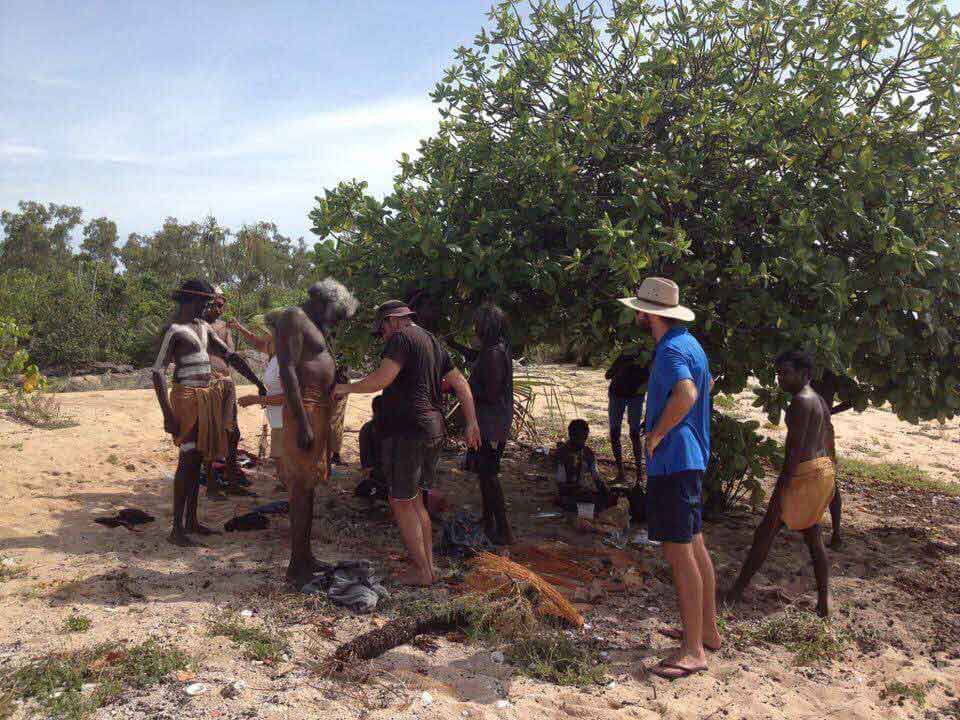
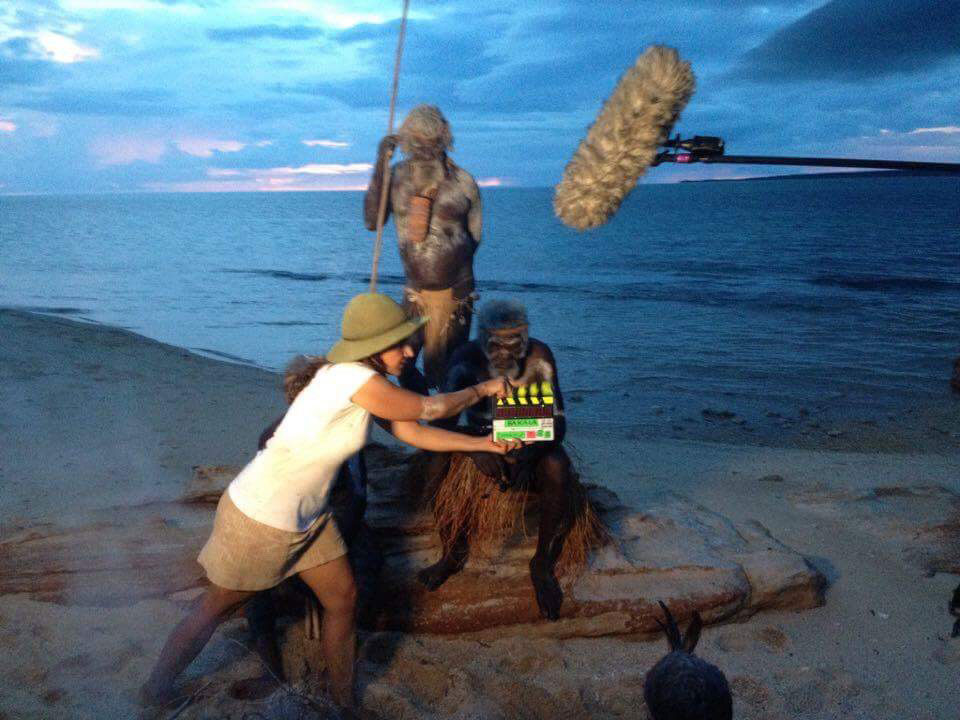
How did the concept of Bakala evolve?
Nik and Bakala explored many different narrative threads but seemed to always navigate back to the quest for the cure, which was the original dream that Bakala had. It is a powerful story especially in that the bundles of medicine that Bakala gathers are in reality being sent to be tested at Macquarie University for effectiveness in treating MJD. So although we explored lots of dramatic and fictitious threads, we always came back to the simple truth of Bakala looking for the cure.
Nik and I were worried about the performances of the actors but they were brilliant. We had community meetings where Bakala would inspire and motivate people to be a part of the film and they all rallied around him. It was a beautiful thing to be a part of.
Tell us about filming on such rugged and remote landscapes
The filming process was grueling. We had a very small crew that worked in incredibly hot conditions over the new year. We all had a part to play in production design, which took around 8 days and the filming over 6 days. The place itself is stunning so although we had to suffer through the wet season, the atmospherics every afternoon and the locations were beautiful.
We almost bogged the car on the beach, on the bush track to the beach and on the bush track to the lake. The boys enjoyed that much more than I did.
We also got a very expensive camera wet…that wasn’t good….at all.
Any funny moments on set with Bakala, the cast or crew?
Film making can be a pretty slow process, so the funniest moments were when Bakala and Derek would start to direct to speed things up. Hilarious.
For the beach scene with all the men in lap-laps, I bought along a bunch of male G-strings so that their ‘packages’ could be safely contained. The discussion about whether to wear them or not was pretty funny. Only Djaymila did.
What was it like working with Bakala and his community on Groote Eylandt?
All the crew agreed that it was a life changing experience filming with Bakala on Groote Eylandt. We spent new years eve with Bakala and his family dancing out on the verandah of his house, which was pretty cool. They made us feel like a part of the family.
We put up heaps of posters and did a fair bit of consultation in the lead up to the filming so everyone knew who these strangers were and what we were up to. That’s important in remote communities, especially when it comes time to recruit people to work on the film.
Some of the younger men and women were truly inspiring. Listening to Ramson Lalara singing was breath taking and I was really happy to mentor Shirleena Murrungun on the production. She would make a great Producer!
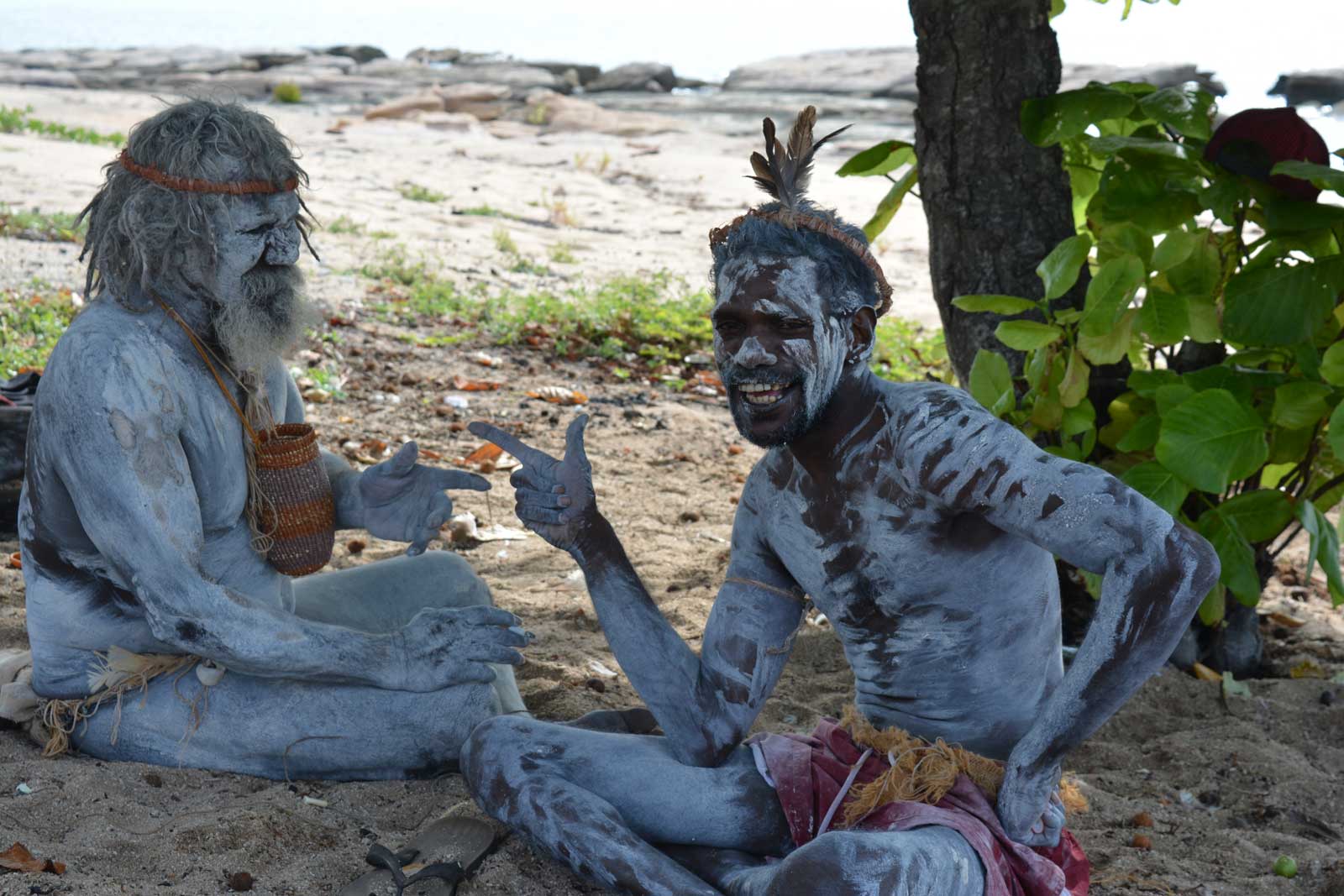
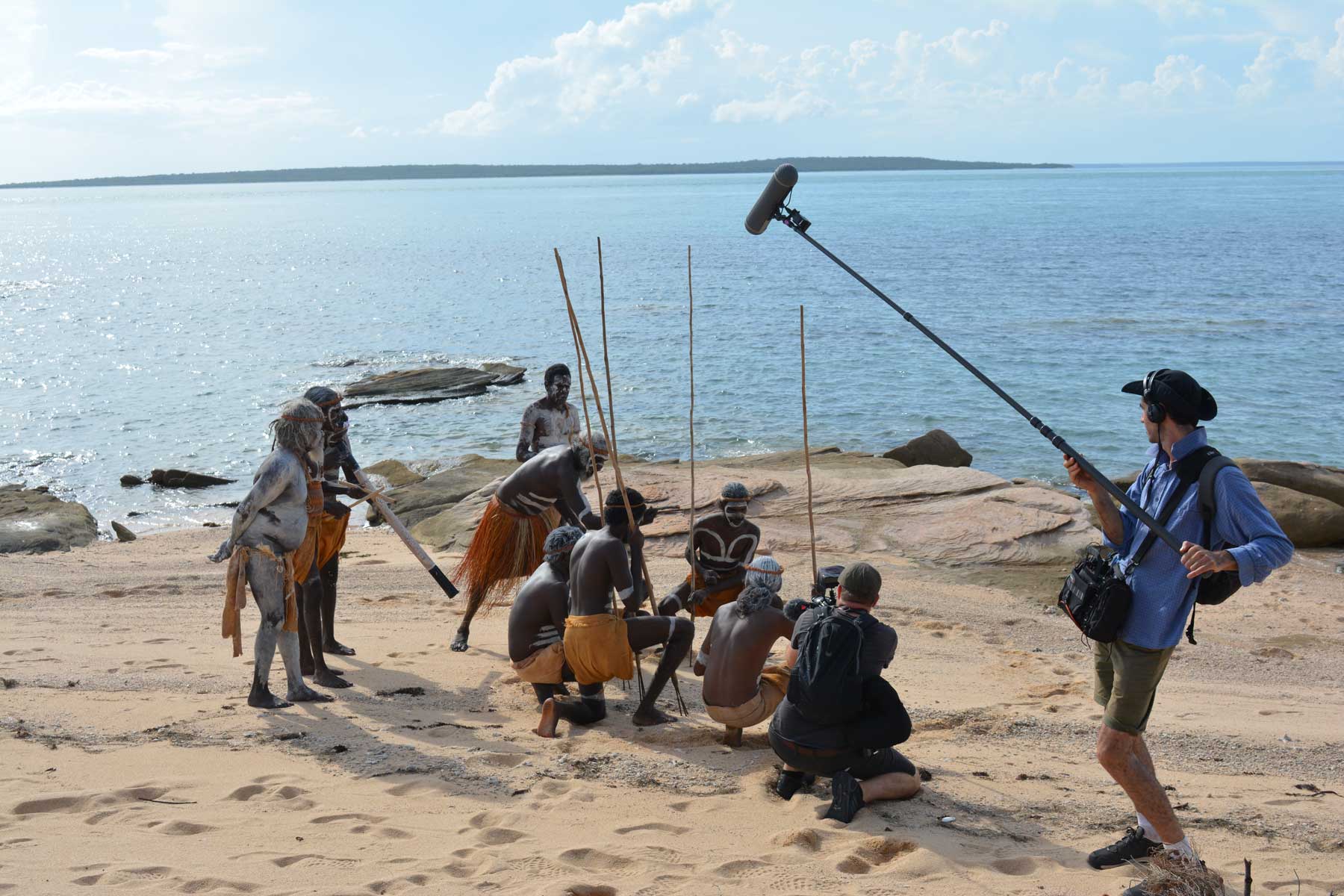
What was Bakala’s reaction when he first saw the film?
We weren’t with Bakala when he first saw the film but we are friends with him on Facebook so…..let’s just say he is pretty proud.
Can you tell us about seeing the realities of MJD first hand?
Witnessing the day to day realities of people living with MJD in a remote community is heart breaking. Things like trying to get into a light plane when you can hardly walk, push a wheelchair across dirt and sand. Really hard, but you would never hear anyone complain.
Bakala is a champion. He worked so hard on the film and even when we could see him getting very tired in the afternoons, he would urge us to push on. He has a very strong character. I can’t wait for the world to meet him.
Can you describe the impact of the MJD Foundation’s work in the communities you visited whilst on location?
The MJD Foundation is such a valued and treasured organization not only on Groote but across Arnhem Land. They not only provide practical day to day relief for sufferers and their families, but what they are doing is at the forefront of scientific research. They are bringing the richness of traditional knowledge together with the best of western science to help people with MJD.
What do you hope the impact of this film is on its audience?
I hope that audiences will join Bakalas quest to help find a cure in the traditional medicines of the land. There is such a wealth of cultural and scientific knowledge that can be harnessed to fight a myriad of ailments but indigenous communities need help to unlock this knowledge before the knowledge dies with the elders.

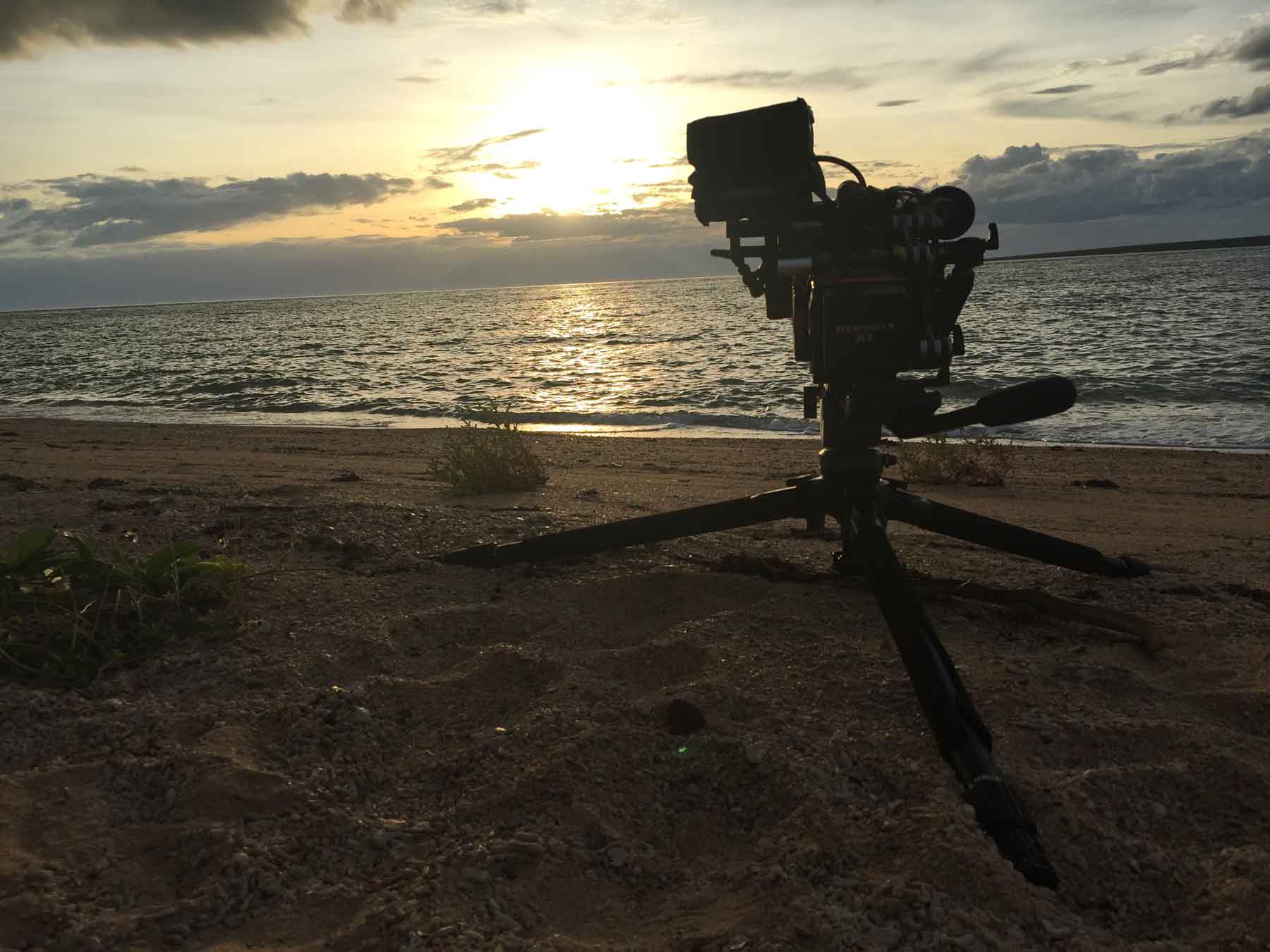

Recent Comments